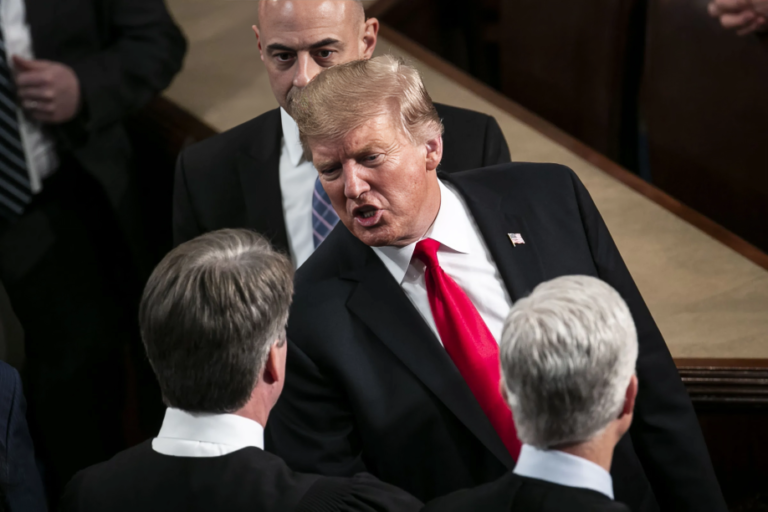In a heated exchange over trade relations, Canadian Prime Minister Mark Carney condemned U.S. President Donald Trump’s newly announced auto tariffs as a “direct attack” on Canada. This assertion comes amidst a brewing trade war that Carney argues is detrimental not only to Canadian interests but also to American consumers, as evidenced by a significant drop in U.S. consumer confidence.
On Wednesday, Trump declared a 25 percent tariff on auto imports, proclaiming, “This is permanent.” In response, Carney expressed his intent to defend Canadian workers and industries, stating, “We will defend our workers. We will defend our companies. We will defend our country.” However, he emphasized the need to review the specifics of Trump’s executive order before determining retaliatory actions.
To mitigate the impact of these tariffs, Carney announced a CA$2 billion ($1.4 billion) “strategic response fund” aimed at protecting Canadian auto jobs. The auto sector is crucial for Canada, employing approximately 125,000 people directly and nearly 500,000 in related fields.
The implications of these tariffs are significant, especially since automobiles represent Canada’s second-largest export. Carney noted the Ambassador Bridge, a vital trade artery that accounts for 25 percent of U.S.-Canadian trade, carries CA$140 billion ($98 billion) annually, underscoring the economic interdependence of the two nations.
The trade war initiated by Trump has led to increased uncertainty, with American consumer confidence recently hitting its lowest point since January 2021. “His trade war is hurting American consumers and workers, and it will hurt more,” Carney remarked while campaigning in Windsor, Ontario, ahead of the upcoming Canadian elections.
Ontario Premier Doug Ford echoed Carney’s concerns, warning that if tariffs proceed, auto plants on both sides of the border could shut down simultaneously. He criticized Trump’s rhetoric, stating, “I call it Termination Day for American workers.”
Despite the escalating tensions, Carney has yet to communicate with Trump since taking office on March 14, a delay that is unusual for leaders of the neighboring countries. “It would be appropriate that the president and I speak given the action that he has taken. I’m sure that will happen soon,” Carney said.
As the situation evolves, opposition Conservative leader Pierre Poilievre urged Trump to reconsider his stance, emphasizing that the tariffs will harm American auto workers just as much as their Canadian counterparts. “The message to President Trump should be to knock it off,” he said, suggesting that Trump may yet change his mind, as he has done in the past.










+ There are no comments
Add yours